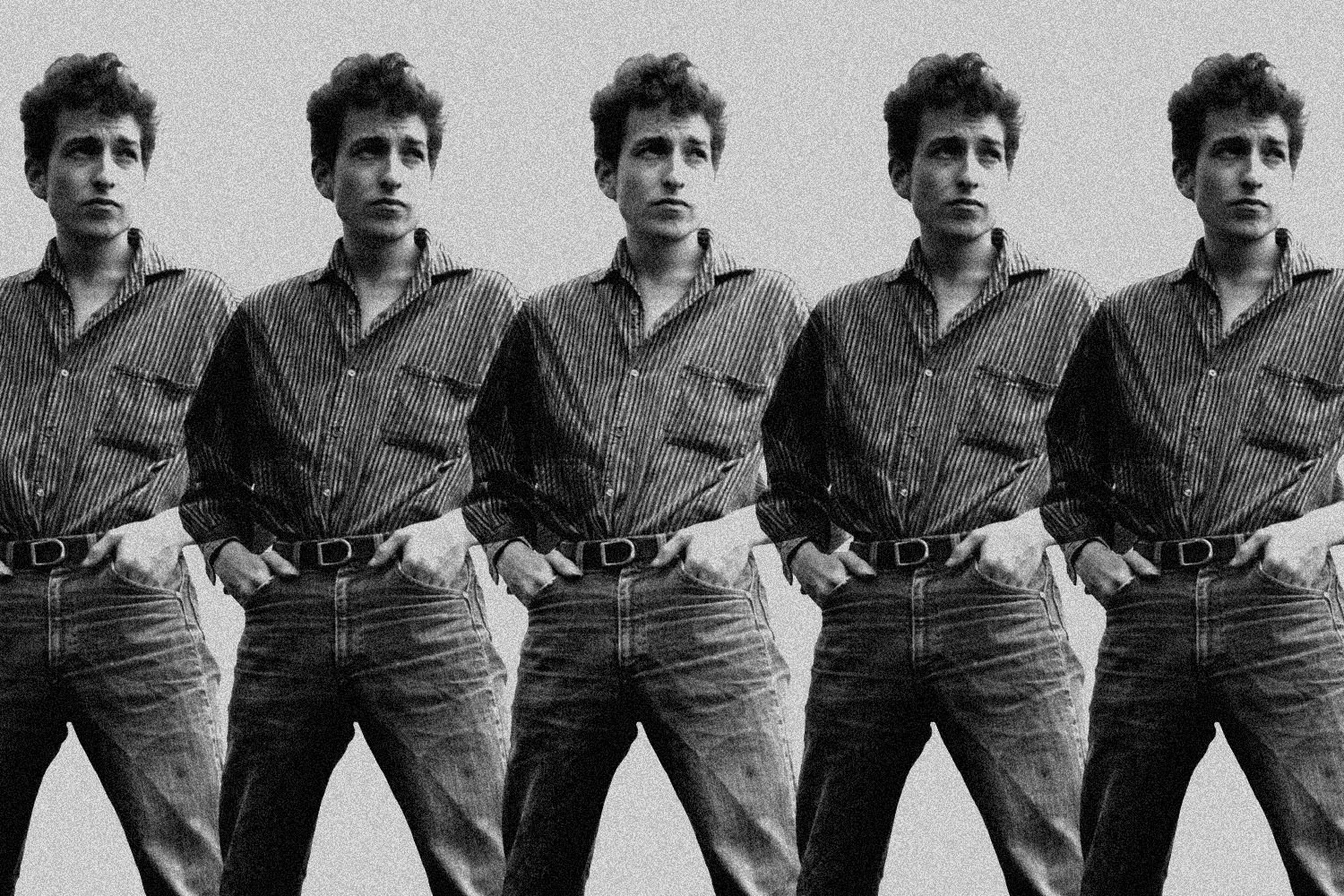There’s a moment toward the end of Hiss Golden Messenger’s music video for “Sanctuary” where the camera pulls back to reveal that the American flag hanging behind the kneeling songwriter (real name M.C. Taylor) — a touchstone of so many other country-rock videos — has actually been hanging upside down in the distress position the entire time. It’s fitting for a song that chronicles the helplessness we all felt during the height of the pandemic and in the wake of nationwide protests over the death of George Floyd (“Feeling bad, feeling blue/Can’t get out of my own mind, but I know how to sing about it,” Taylor sings), but it also serves as a quiet reminder that many of the issues he references predate COVID-19, that perhaps the stars and stripes we’ve been staring at our whole lives have been inverted for longer than we realize.
When the pandemic first hit last year, there was a lot of talk from glass-half-full types about how, at the very least, we’d get plenty of great art out of quarantine. They’d point out that Shakespeare wrote King Lear while stuck in quarantine during a plague and insist that the newfound isolation and extra time on our hands would birth similar masterpieces. Of course, it didn’t quite pan out that way. It turns out musicians are human too, and they’re just as likely to see their productivity take a dip when they’re feeling depressed and overwhelmed — especially after the virus wiped out their ability to perform live. But Taylor’s latest album, Quietly Blowing It (out now via Merge Records) is a rarity: a collection of songs that movingly captures the trauma and anxiety of 2020 on a macro level as well as a personal one.
The follow-up to 2019’s excellent, Grammy-nominated Terms of Surrender addresses both the pandemic itself and the broader underlying issues that were amplified by it. On “Sanctuary,” Taylor alludes to the COVID-19-related death of legendary songwriter John Prine (“Handsome Johnny had to go, child”). The title track sees him grappling with a bleak future as he sings, “The shape of things don’t look so good/On the TV there’s a riot goin’ on/There’s a big pink sun over Hollywood with no new stars burning.” The funky “Mighty Dollar” highlights our country’s consumerism and wealth disparity as Taylor explains how the “poor man loses and the rich man wins” and “all you got is getting smaller” over a B3 organ and clavinet grooves. He delivers a mission statement of sorts on “Way Back in the Way Back”: “Up with the mountains, down with the system that keeps us in chains.”
But for all its attempts to reckon with systemic issues like racism and classism, much of Quietly Blowing It finds Taylor looking inwards. On the soulful “It Will If We Let It,” he cops to not being entirely present in a relationship (“Were you happy? I ignored it/I was telling other stories”), and on “Glory Strums (Loneliness of a Long-Distance Runner)” early-morning jogs serve as the setting for some serious self-reflection. It’s these personal touches that keep the record from feeling too preachy. There’s no hubris here; rather than relying on grand statements or platitudes, Taylor simply walks us through the past year as he experienced it.
Of course, it’s not all doom and gloom. Despite its title, Quietly Blowing It is ultimately an optimistic record, one that manages to find hope in a time when it was difficult to do anything but despair. He counts his blessings (“Food on the table, a body that’s able, we’ll be fine in the morning”), urges us to “hope hope is contagious” and predicts a new day coming. “I wrote about things that felt important to bear witness to for myself: Class and money and work. Alienation, disorientation, miscommunication and self-hatred. Climate change,” he explains in the album’s accompanying essay, “Mourning in America.” “And I wrote about the inverse of these things too: Locating hope and inspiration in small moments and movements. Living productively. Making family. Finding and offering sanctuary. Time as a healing agent. I wrote to make sense and to begin the process of grieving and rebuilding in my own life.” As he reminds us elsewhere on the record, “we’re broke but we’re breathing.”
Taylor’s not shy about wearing his influences on his sleeve, and in addition to John Prine, Quietly Blowing It is full of homages and/or direct references to everyone from Sly and the Family Stone and Curtis Mayfield to Rod Stewart and Bob Dylan. (Sometimes even several at a time — “Hardlytown,” which borrows from Mayfield’s “People Get Ready,” also features a “Subterranean Homesick Blues”-inspired video.) A lesser songwriter might have a problem juggling all those inspirations without getting too derivative, but Taylor’s vision remains his own. If anything, it’s proof that 10 albums into his career, he’s firing on all cylinders. This latest collection of songs is a career-best, and it begs the question: why is Taylor not yet an enormous star? Maybe we’re the ones who’s been quietly blowing it (on that front, at least) this whole time.
This article was featured in the InsideHook newsletter. Sign up now.


















![[L-R] Bill Berry, Michael Stipe, Mike Mills and Peter Buck of R.E.M. at the Aragon Ballroom in Chicago, Illinois on July 7, 1984.](https://www.insidehook.com/wp-content/uploads/2024/12/rem-book-interview.jpg?resize=750%2C750)




